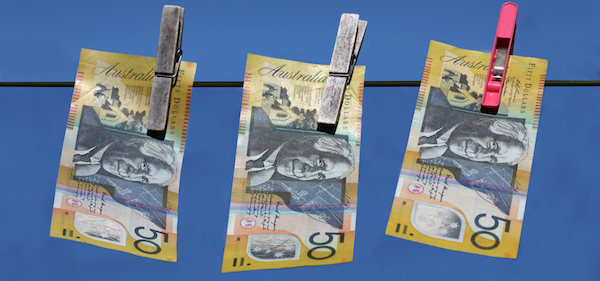As the Irish proverb goes, “if you don’t sow in Spring, you won’t reap in Autumn” and a gentle spring cleaning of your finances now, could bring rewards a little further down the track.
So, do your finances need an overhaul? Find out by answering the following questions:
Property
Your home is probably your biggest asset but is it working for you and do you have the best mortgage?
Having capital tied up in your home isn’t always the best way of making your money work for you. Freeing up some of your assets to invest or clear personal debt may make more financial sense in the long term
For many Australians, when they take out a mortgage, this is the one they stick with through the years without ever asking if it still meets their requirements. Switching mortgages isn’t as complex as it used to be, and a discounted rate could save you hundreds of dollars each month. Of course, there are things double check, such as exit fees, establishment fees and how long a discounted rate applies. You can research all this yourself, but a licensed broker may be better suited to finding you the best deal.
For more information on checking whether your mortgage is healthy, visit Moneysmart.gov.au
Superannuation
Do you know where all your super accounts are held and how they are performing?
For each super account you hold, no matter the balance, you will be paying an ongoing fee. Consolidating funds can take time, but may benefit you financially when retirement comes knocking. Industry super funds historically have the lowest levels of fees and are certainly worth considering if you are sure such funds meet your needs. Once you have chosen your selected fund, the administrator should be able to assist with the rollover of your other funds.
Finding any lost super which may have fallen by the wayside over the years, could provide a welcome boost to your super balance. SuperSeeker is a free service offered by the ATO which, after providing a limited amount of information, can present possible matches to unclaimed super paid that has been on your behalf. For more information, visit SuperSeeker.gov.au
Ensure your superfund has your updated details. If your super is something you don’t look at too often, the chances are your fund may not have updated details, especially if you have changed your residence, switched your phone number or email address.
Credit card debt. If you can’t possibly fit another card in your wallet or purse, ask yourself: how many cards do you need?
Credit card debt is typically the most expensive debt you can have. Consolidate all your balances onto one card, if your limit allows, and make sure this card offers the best rate for the longest time. Introductory rates may be lower initially, but once the ‘honeymoon period’ is over, they can cost you dearly. If you don’t pay off your balance each month, look for a card with a low rate for the life of the balance transfer. To find a better deal on your credit card, visit www.finder.com.au.
Reduce your credit limit if you do not need it. While it’s tempting to have a much larger than required limit on your card, reducing it will remove the possibility of overextending your credit. Also, should your card be lost or stolen, the damage which can be done by those less scrupulous can be greatly reduced.
If you’re having problems repaying your credit card debt, contact your provider. They may be able to offer you a lower rate or freeze the interest and organise a repayment plan. If your finances are getting on top of you, then financial counselling should be available in your area.
Savings
The art of putting money aside for a rainy day or to save for that special something is slowly being lost in the age of readily available credit, but how much can you afford to pay yourself?
Having an online savings account linked to your everyday internet banking account makes it easier to put money aside, and access it if you really need it. Agree to an amount each month that comes out of your account before anything else, and put it in an online account. Some accounts pay a good rate of interest and if the money isn’t available when you go to the ATM, you are less likely to spend it.
One other method of saving money and reducing mortgage interest payments is to have a mortgage offset account. Quite simply, the more money you have in this account, the less interest you pay on your mortgage – in essence this earns you interest at the same rate at which your mortgage is set – try finding this rate from any bank.
If you have a budget, do you stick to it?
Spring is as good a time as any to revisit your budget, review you plans for the next year and reaffirm your need to stick to it. If your expenses are outpacing your income, then you need to redefine what you spend. For an easy-to-use budget planner, visit Moneysmart.gov.au.

